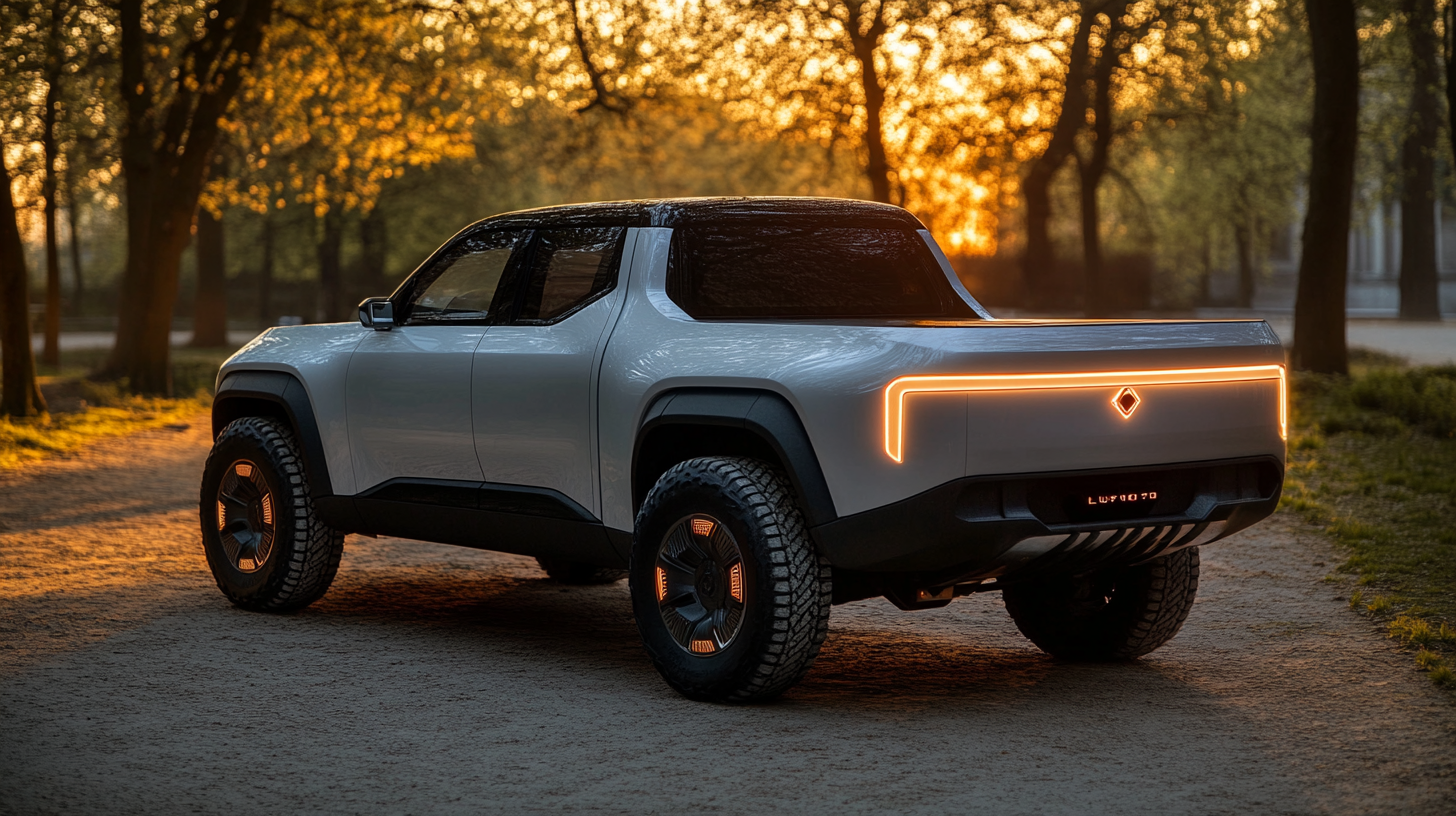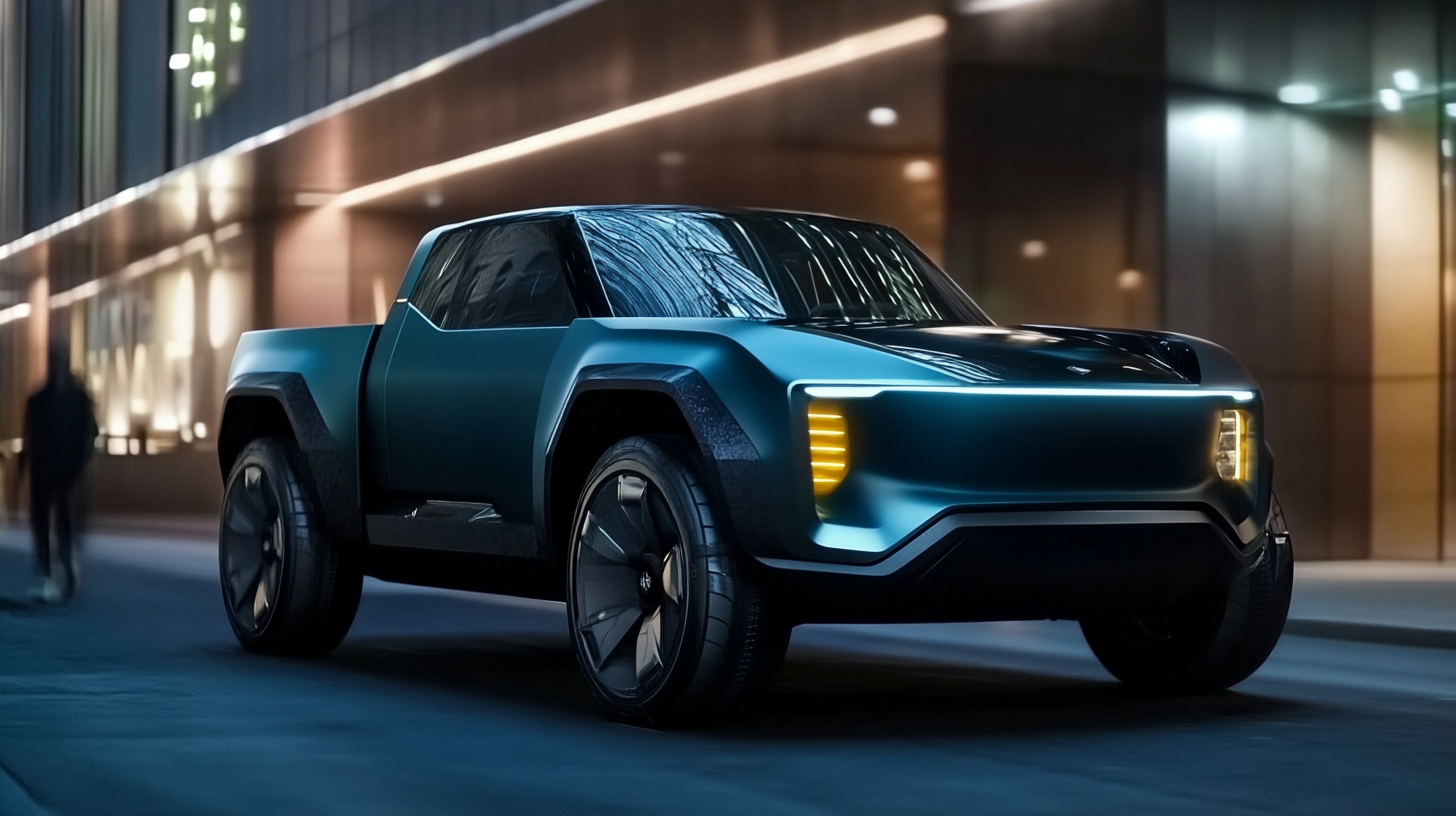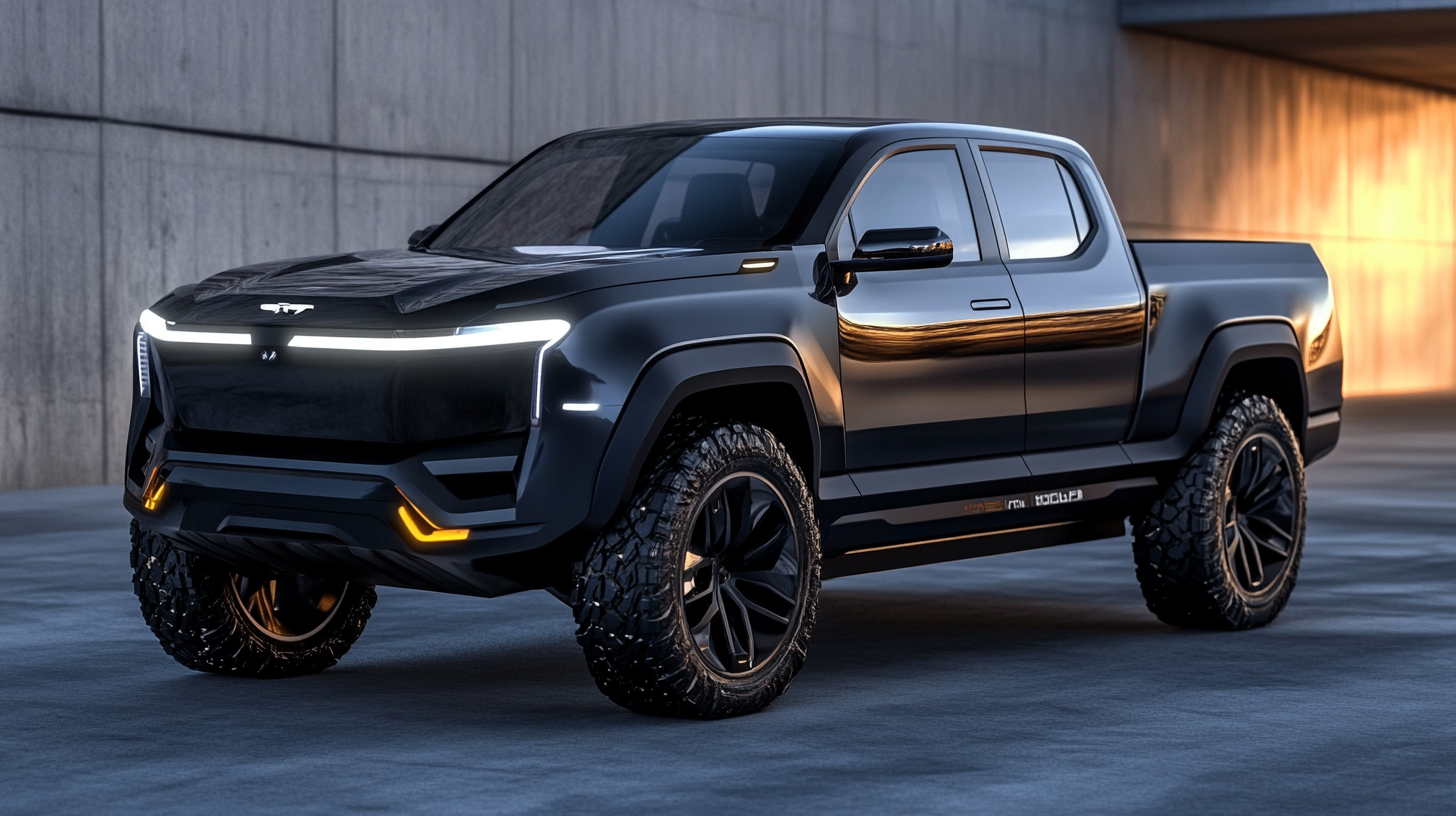Sorry. We did not find anything.
Exploring the Top Innovations in Best Electric Pickup Design and Functionality
The rise of Electric Pickup trucks marks a significant revolution in the automotive industry, merging traditional pickup functionality with advanced electric technology. According to a recent report by the International Council on Clean Transportation, electric pickups are projected to constitute over 20% of the U.S. pickup market by 2030, driven by increasing consumer demand for sustainable and efficient transportation options. This shift is propelled by innovations in design and functionality that enhance performance and utility while reducing environmental impact. With major manufacturers entering the electric pickup arena, key features such as impressive towing capacities, extended battery range, and cutting-edge technology are becoming standard. As we delve into the top innovations in electric pickup design and functionality, it's essential to compare the foremost models shaping this exciting new segment of the market, illustrating how electric pickups are redefining what it means to drive a truck in the 21st century.

The Evolution of Electric Pickup Trucks: A Look at Design Advancements
The electric pickup truck market is witnessing a remarkable evolution, characterized by significant advancements in design and functionality. As consumer demand grows—projected to reach over 1 million units by 2025, according to a recent report by Allied Market Research—the automotive industry is prioritizing innovative features and sustainable materials. Modern electric pickups are designed not only to offer superior towing capacity and off-road capabilities but also to enhance aerodynamics, which can lead to increased range. For instance, the introduction of stylized, streamlined designs has helped models like the Ford F-150 Lightning achieve an estimated range of up to 300 miles on a single charge.
In addition to aesthetics and performance, the integration of technology features is transforming the electric pickup landscape. Advanced driver-assistance systems (ADAS), electric powertrains, and connectivity options are standard in many new models, contributing to a safer and more efficient driving experience. According to a report from McKinsey, around 70% of consumers are willing to adopt electric trucks that come equipped with versatile tech features, including over-the-air updates and enhanced infotainment systems. As manufacturers continue to innovate, the electric pickup truck of the future is poised to combine rugged utility with cutting-edge technology, ultimately reshaping the way we think about utilities in transportation.

Key Features of Leading Electric Pickup Designs: Functionality Meets Aesthetics
The electric pickup truck market is rapidly evolving, showcasing cutting-edge designs that combine functionality with aesthetic appeal. Leading manufacturers are focusing on creating vehicles that not only serve practical purposes but also elevate the driving experience through thoughtful design elements. For instance, many electric pickup trucks feature streamlined exteriors that enhance aerodynamics, reducing drag and improving efficiency while maintaining a rugged, muscular look that appeals to traditional truck enthusiasts.
In addition to striking appearances, top electric pickups are packed with advanced functionality. Innovations such as adjustable cargo beds, integrated tech for towing and hauling, and energy-efficient battery systems are becoming the norm. Many designs now incorporate smart storage solutions, allowing for increased versatility, whether it’s for tools, recreational gear, or everyday groceries. Furthermore, with intuitive interfaces and connectivity features, drivers can easily manage their vehicle’s performance, whether checking battery levels or accessing navigation—all seamlessly integrated into a visually appealing dashboard. This harmony of design and functionality not only sets the stage for a new era of pickups but also addresses the needs and desires of modern consumers.

Sustainability in Electric Pickups: Innovations Driving Eco-Friendly Manufacturing
The electric pickup truck market is witnessing a transformative wave fueled by sustainability innovations that revolutionize eco-friendly manufacturing. According to a report by Deloitte, the global electric vehicle (EV) market is expected to exceed 31 million units sold by 2030, with pickups representing a significant share of this surge. Manufacturers are increasingly utilizing recyclable materials, such as high-strength steel and aluminum, which not only enhance vehicle performance but also reduce the carbon footprint of the production process.
One notable development is the integration of renewable energy sources into manufacturing facilities. For instance, companies like Ford are investing in solar power to drive their production, aligning with their commitment to achieving carbon neutrality globally by 2050. Furthermore, innovative battery technology is making strides, with firms like Rivian focusing on sustainable sourcing and battery recycling, ensuring that the ecological impact is minimized throughout the vehicle's lifecycle. As electric pickups continue to grow in popularity, these advancements highlight a crucial shift towards a more sustainable automotive industry.
Exploring the Top Innovations in Best Electric Pickup Design and Functionality - Sustainability in Electric Pickups: Innovations Driving Eco-Friendly Manufacturing
| Innovation | Description | Sustainability Impact | Functionality Benefit |
|---|---|---|---|
| Solar Panel Integration | Incorporating solar panels on the roof for auxiliary power. | Reduces reliance on grid electricity. | Provides additional range and powers onboard systems. |
| Recyclable Materials | Use of sustainable, recyclable materials for body construction. | Lowers environmental impact during production and disposal. | Enhances lifecycle management of the vehicle. |
| Battery Recycling Programs | Programs for recycling old batteries effectively. | Prevents hazardous waste and promotes material reuse. | Supports long-term sustainability of battery resources. |
| Energy Efficient Drive Systems | Advanced electric drive systems that optimize energy use. | Improves overall vehicle efficiency and reduces emissions. | Increases driving range and performance under various conditions. |
| Smart Charging Solutions | Integration of smart technologies for optimized charging. | Reduces peak energy demand and utilizes renewable energy sources. | Enhances user convenience and maximizes battery health. |
Chinese Manufacturing Excellence: Setting Global Standards for Electric Vehicles
Chinese manufacturing has emerged as a formidable force in the electric vehicle (EV) industry, particularly in the design and functionality of electric pickups. With a robust infrastructure and a commitment to innovation, China is setting new global standards that elevate performance and sustainability in this sector. Companies are prioritizing technological integration, ensuring that their electric pickups offer not only superior battery life and charging efficiency but also cutting-edge smart features that enhance the user experience.
The craftsmanship seen in Chinese-made electric pickups reflects a blend of quality and advanced technology, showcasing meticulous attention to detail from design to functionality. As these vehicles hit the global market, they embody the best practices in electric vehicle manufacturing, pushing competitors to rethink their strategies. The focus on eco-friendly materials and production processes further solidifies China’s role as a leader in the push towards sustainable transportation solutions, attracting worldwide interest and investment in its electric vehicle sector.
Exploring the Top Innovations in Electric Pickup Design and Functionality
This chart illustrates the advancements in key features of electric pickups by various manufacturers, showcasing improvements in range, charging speed, and payload capacity over recent years.
The Future of Electric Pickup Trucks: Trends Shaping the Next Generation
The future of electric pickup trucks is being shaped by key innovations that enhance both design and functionality. As the electric vehicle market expands, manufacturers are reimagining what a pickup can be, prioritizing not only sustainability but also advanced technological features. The latest trends indicate a shift towards more rugged and versatile designs that can compete with traditional fossil fuel models. Features such as improved aerodynamics, integrated multifunctional spaces, and advanced towing capabilities are becoming standard, attracting a new generation of environmentally conscious consumers.
Moreover, the race for next-generation battery technology is heating up, with companies striving to develop lighter, more efficient batteries that promise longer ranges and quicker charging times. This advancement is crucial for electric pickups, as they often require higher power for both performance and heavy-duty tasks. As electric pickups evolve, we can expect to see innovations that not only enhance functionality but also redefine the user experience, bringing us closer to a future where electric vehicles dominate the roads. The competition among manufacturers in this segment will undoubtedly accelerate innovation, ensuring that customers enjoy the best features available in their electric pickups.
